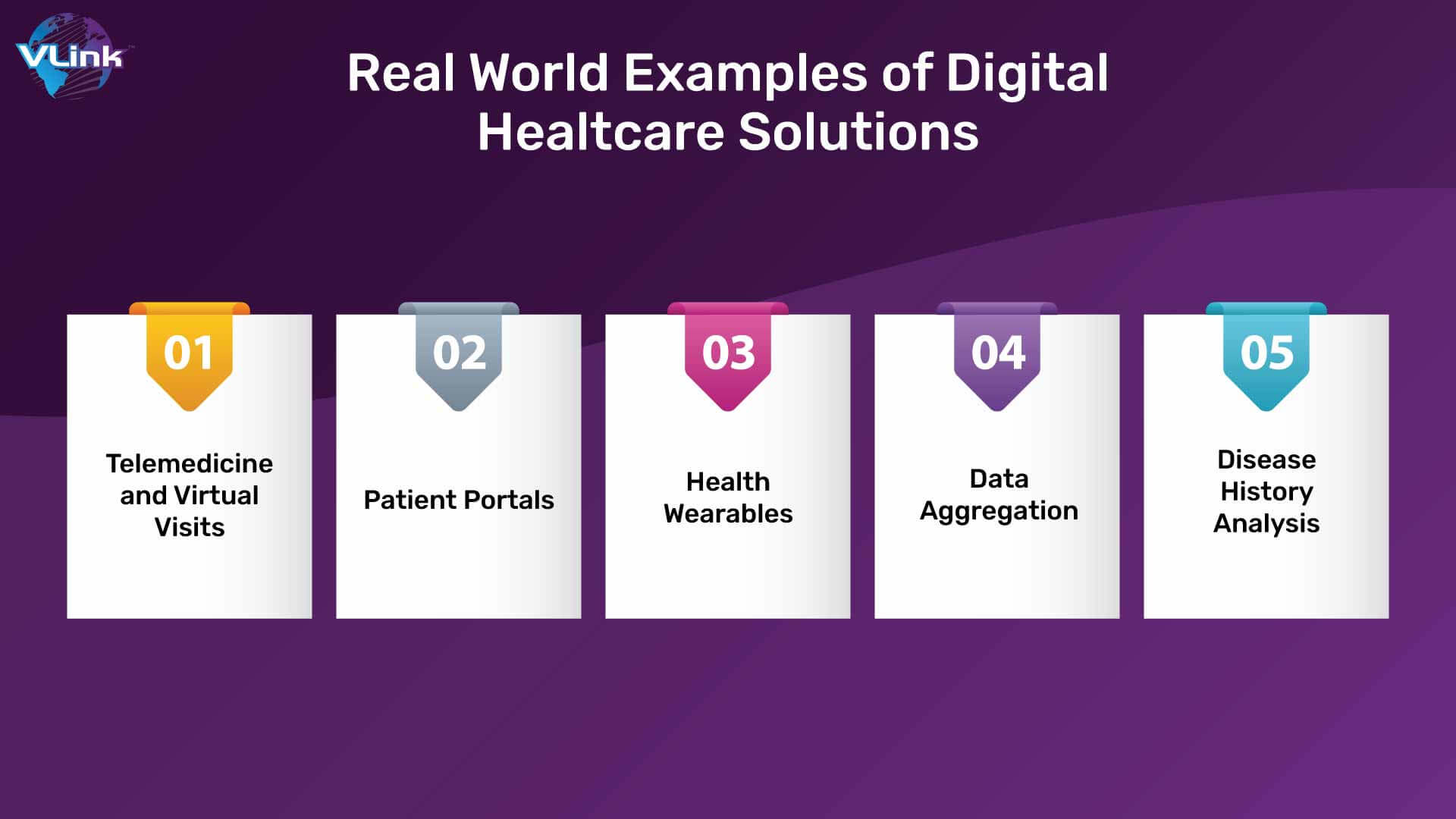Why Digital Health Matters for Startup Success
Digital health is revolutionizing the way healthcare is delivered, and startups are at the forefront of this transformation. The integration of technology and healthcare has given rise to a new era of innovation, where digital health solutions are improving patient outcomes, increasing efficiency, and enhancing the overall customer experience. For startups, digital health presents a vast array of opportunities for growth, investment, and impact.
According to a report by Deloitte, the global digital health market is expected to reach $504.4 billion by 2025, growing at a compound annual growth rate (CAGR) of 21.1%. This growth is driven by the increasing adoption of digital technologies, such as artificial intelligence (AI), blockchain, and the Internet of Things (IoT), which are transforming the way healthcare is delivered and managed.
Digital health for startups is not just about developing new technologies; it’s about creating solutions that address real-world problems and improve the lives of patients, providers, and payers. By leveraging digital health technologies, startups can develop innovative solutions that increase access to care, improve health outcomes, and reduce healthcare costs.
Moreover, digital health startups have the potential to disrupt traditional healthcare models and create new business opportunities. For instance, telemedicine platforms are changing the way patients access healthcare services, while AI-powered diagnostic tools are improving the accuracy and speed of diagnosis.
However, digital health startups also face unique challenges, such as navigating complex regulatory environments, ensuring data security and privacy, and addressing the needs of diverse stakeholders. To succeed, digital health startups must be agile, innovative, and customer-centric, with a deep understanding of the healthcare ecosystem and the needs of their target market.
By embracing digital health, startups can create a new generation of healthcare solutions that are more effective, efficient, and patient-centered. As the digital health landscape continues to evolve, startups that are able to innovate, adapt, and deliver value to their customers will be well-positioned for success in this rapidly growing market.
Navigating the Digital Health Landscape: Trends and Opportunities
The digital health landscape is rapidly evolving, with new technologies, trends, and business models emerging every day. For startups, navigating this complex landscape can be challenging, but also presents numerous opportunities for growth and innovation. In this section, we will explore the current state of the digital health landscape, including the key trends, technologies, and business models that startups can leverage to drive success.
One of the most significant trends in digital health is the increasing adoption of artificial intelligence (AI) and machine learning (ML) technologies. AI and ML are being used to develop predictive analytics tools, personalize patient care, and streamline clinical workflows. Startups that are able to harness the power of AI and ML will be well-positioned to drive innovation and growth in the digital health market.
Another key trend in digital health is the rise of telemedicine and virtual care. Telemedicine platforms are changing the way patients access healthcare services, and startups that are able to develop user-friendly and effective telemedicine solutions will be in high demand. Additionally, the use of blockchain technology is becoming increasingly popular in digital health, with startups using blockchain to develop secure and transparent data management systems.
In terms of business models, digital health startups are exploring a range of innovative approaches, including subscription-based services, freemium models, and pay-per-use platforms. Startups that are able to develop scalable and sustainable business models will be better positioned to drive growth and success in the digital health market.
Some of the key technologies that are driving innovation in digital health include the Internet of Things (IoT), 5G networks, and cloud computing. IoT devices are being used to develop wearable health monitors, 5G networks are enabling faster and more reliable data transmission, and cloud computing is providing startups with access to scalable and secure data storage and analytics capabilities.
For digital health startups, understanding the current landscape and identifying opportunities for growth and innovation is critical. By staying up-to-date with the latest trends, technologies, and business models, startups can develop effective strategies for success and make a meaningful impact in the healthcare industry.
Some of the key players in the digital health market include healthcare organizations, research institutions, and other startups. Collaborating with these players can provide startups with access to valuable resources, expertise, and networks, and can help to drive innovation and growth.
Overall, the digital health landscape is complex and rapidly evolving, but also presents numerous opportunities for growth and innovation. By understanding the current trends, technologies, and business models, digital health startups can develop effective strategies for success and make a meaningful impact in the healthcare industry.
How to Build a Digital Health Solution that Meets User Needs
Building a successful digital health solution requires a deep understanding of the needs and pain points of patients, providers, and payers. Startups must be able to design and develop solutions that meet the unique needs of each stakeholder group, while also ensuring that the solution is user-friendly, efficient, and effective.
One of the key steps in building a digital health solution is to conduct thorough user research. This involves gathering data and insights from patients, providers, and payers to understand their needs, preferences, and behaviors. Startups can use a range of research methods, including surveys, interviews, and focus groups, to gather this data.
Once the research is complete, startups can use the insights gathered to develop a prototype of the digital health solution. This prototype should be tested with a small group of users to gather feedback and identify areas for improvement. Startups can use this feedback to refine the solution and ensure that it meets the needs of the target user group.
In addition to user research and prototyping, startups must also consider the technical requirements of the digital health solution. This includes ensuring that the solution is secure, scalable, and compliant with relevant regulations and standards. Startups must also consider the integration requirements of the solution, including the need to integrate with existing healthcare systems and technologies.
Another key consideration for startups is the user experience of the digital health solution. The solution must be easy to use, intuitive, and visually appealing. Startups can use a range of design thinking principles and methodologies to ensure that the solution meets the needs of the target user group.
Finally, startups must consider the business model of the digital health solution. This includes identifying the revenue streams, cost structures, and key partnerships that will be required to drive growth and success. Startups must also consider the competitive landscape and identify opportunities to differentiate the solution from existing competitors.
By following these steps, startups can build digital health solutions that meet the needs of patients, providers, and payers. This requires a deep understanding of the needs and pain points of each stakeholder group, as well as the technical, design, and business requirements of the solution.
Some of the key tools and technologies that startups can use to build digital health solutions include design thinking methodologies, agile development frameworks, and cloud-based platforms. Startups can also use a range of data analytics tools and technologies to gather insights and drive decision-making.
Overall, building a successful digital health solution requires a combination of technical, design, and business expertise. Startups must be able to design and develop solutions that meet the unique needs of each stakeholder group, while also ensuring that the solution is user-friendly, efficient, and effective.
The Role of Data Analytics in Digital Health: Unlocking Insights and Value
Data analytics plays a critical role in digital health, enabling startups to unlock insights and value from the vast amounts of data generated by healthcare systems, patients, and providers. By leveraging data analytics, startups can drive decision-making, improve outcomes, and create new business opportunities.
One of the key benefits of data analytics in digital health is the ability to identify patterns and trends in patient data. This can help startups to develop more effective treatment plans, improve patient outcomes, and reduce healthcare costs. For example, data analytics can be used to identify patients who are at high risk of readmission, enabling startups to develop targeted interventions to reduce readmission rates.
Data analytics can also be used to improve the efficiency and effectiveness of healthcare operations. For example, data analytics can be used to optimize staffing levels, reduce wait times, and improve patient flow. This can help startups to reduce costs, improve patient satisfaction, and enhance the overall quality of care.
However, working with healthcare data can be challenging, particularly in terms of data quality, security, and regulatory compliance. Startups must ensure that they have the necessary infrastructure and expertise to handle large volumes of data, while also ensuring that data is secure, accurate, and compliant with relevant regulations.
Some of the key data analytics tools and technologies used in digital health include machine learning algorithms, natural language processing, and predictive analytics. Startups can also use data visualization tools to present complex data insights in a clear and actionable way.
Examples of startups that are using data analytics to drive innovation and growth in digital health include companies like Medidata, which provides data analytics and insights to pharmaceutical companies, and Flatiron Health, which uses data analytics to improve cancer treatment outcomes.
Overall, data analytics is a critical component of digital health, enabling startups to unlock insights and value from healthcare data. By leveraging data analytics, startups can drive decision-making, improve outcomes, and create new business opportunities.
Startups can use data analytics to develop new business models, such as data-as-a-service, where they provide data insights and analytics to healthcare organizations and pharmaceutical companies. They can also use data analytics to develop new products and services, such as personalized medicine and precision health.
In addition, data analytics can be used to improve the patient experience, by providing patients with personalized health insights and recommendations. This can help to improve patient engagement, adherence, and outcomes.
Regulatory Considerations for Digital Health Startups: Navigating the Complex Landscape
The regulatory environment for digital health startups is complex and constantly evolving. Startups must navigate a range of laws, regulations, and standards to ensure compliance and avoid costly fines and penalties. In this section, we will provide an overview of the key regulatory considerations for digital health startups and offer guidance on how to navigate the complex landscape.
One of the key regulatory considerations for digital health startups is the Health Insurance Portability and Accountability Act (HIPAA). HIPAA sets out strict rules for the handling and protection of patient data, including requirements for data encryption, access controls, and breach notification. Startups must ensure that they are compliant with HIPAA regulations to avoid costly fines and penalties.
Another key regulatory consideration for digital health startups is the Food and Drug Administration (FDA) regulations. The FDA regulates medical devices, including software and mobile apps, and startups must ensure that their products meet FDA requirements for safety and efficacy. Startups must also comply with FDA regulations for clinical trials and post-market surveillance.
In addition to HIPAA and FDA regulations, digital health startups must also comply with a range of other laws and regulations, including the General Data Protection Regulation (GDPR) and the California Consumer Privacy Act (CCPA). Startups must ensure that they are transparent about their data collection and use practices and provide patients with control over their data.
To navigate the complex regulatory landscape, digital health startups should consider the following strategies:
First, startups should conduct a thorough regulatory assessment to identify the laws and regulations that apply to their business. This includes reviewing HIPAA, FDA, and other relevant regulations to ensure compliance.
Second, startups should develop a comprehensive compliance program that includes policies and procedures for data protection, access controls, and breach notification. Startups should also establish a compliance team to oversee regulatory compliance and ensure that employees are trained on regulatory requirements.
Third, startups should engage with regulatory agencies and industry organizations to stay up-to-date on the latest regulatory developments and best practices. This includes attending conferences and workshops, participating in industry groups, and engaging with regulatory agencies through public comment periods.
Finally, startups should consider partnering with regulatory experts and consultants to ensure compliance and avoid costly fines and penalties. Regulatory experts can provide guidance on regulatory requirements and help startups develop a comprehensive compliance program.
By navigating the complex regulatory landscape and ensuring compliance with relevant laws and regulations, digital health startups can avoid costly fines and penalties and focus on developing innovative solutions that improve patient outcomes and transform the healthcare industry.
Partnerships and Collaborations: Key to Success in Digital Health
Partnerships and collaborations are essential for success in digital health. By working together with healthcare organizations, research institutions, and other startups, digital health startups can leverage expertise, resources, and networks to drive innovation and growth.
One of the key benefits of partnerships and collaborations in digital health is the ability to access expertise and resources that may not be available in-house. For example, a digital health startup may partner with a research institution to access cutting-edge research and development capabilities, or with a healthcare organization to access clinical expertise and patient data.
Another key benefit of partnerships and collaborations in digital health is the ability to drive innovation and growth. By working together with other startups and organizations, digital health startups can identify new opportunities and develop new solutions that meet the needs of patients, providers, and payers.
Examples of successful partnerships and collaborations in digital health include the partnership between Apple and Stanford Health Care to develop a new app for patients with chronic conditions, and the collaboration between Google and the National Institutes of Health to develop a new platform for analyzing genomic data.
To establish successful partnerships and collaborations in digital health, startups should consider the following strategies:
First, startups should identify potential partners and collaborators that share their vision and goals. This includes researching potential partners and collaborators, attending industry events and conferences, and engaging with industry leaders and experts.
Second, startups should develop a clear and compelling value proposition that outlines the benefits of partnering or collaborating with their organization. This includes highlighting their unique strengths and capabilities, as well as their commitment to innovation and growth.
Third, startups should establish clear and effective communication channels with their partners and collaborators. This includes regular meetings and updates, as well as open and transparent communication about goals, expectations, and challenges.
Finally, startups should be flexible and adaptable when working with partners and collaborators. This includes being open to new ideas and perspectives, as well as being willing to pivot or adjust their approach as needed.
By establishing successful partnerships and collaborations, digital health startups can drive innovation and growth, and make a meaningful impact in the healthcare industry.
Some of the key metrics that startups should track when evaluating the success of their partnerships and collaborations include the number of patients reached, the number of providers engaged, and the revenue generated. Startups should also track metrics such as patient satisfaction, provider adoption, and return on investment.
Overall, partnerships and collaborations are essential for success in digital health. By working together with other startups and organizations, digital health startups can leverage expertise, resources, and networks to drive innovation and growth, and make a meaningful impact in the healthcare industry.
Measuring Success in Digital Health: Key Performance Indicators and Metrics
Measuring success in digital health is crucial for startups to evaluate their progress, identify areas for improvement, and make data-driven decisions. In this section, we will discuss the importance of measuring success in digital health, including the key performance indicators (KPIs) and metrics that startups should track.
One of the key benefits of measuring success in digital health is the ability to evaluate the effectiveness of digital health solutions. Startups can use KPIs and metrics to assess the impact of their solutions on patient outcomes, provider adoption, and revenue growth.
Some of the key KPIs and metrics that startups should track in digital health include:
1. Patient engagement metrics, such as patient activation, patient satisfaction, and patient retention.
2. Provider adoption metrics, such as provider engagement, provider satisfaction, and provider retention.
3. Revenue growth metrics, such as revenue per user, revenue per provider, and revenue growth rate.
4. Clinical outcomes metrics, such as disease management, patient safety, and quality of care.
5. Operational efficiency metrics, such as cost savings, productivity gains, and return on investment.
To measure success in digital health, startups can use a range of data sources, including electronic health records (EHRs), claims data, and patient-reported outcomes. Startups can also use data analytics tools and platforms to analyze and visualize their data, and to identify trends and insights.
Some of the key data analytics tools and platforms used in digital health include:
1. Data visualization tools, such as Tableau, Power BI, and D3.js.
2. Data analytics platforms, such as SAS, R, and Python.
3. Machine learning algorithms, such as supervised learning, unsupervised learning, and deep learning.
4. Predictive analytics tools, such as regression analysis, decision trees, and random forests.
By measuring success in digital health, startups can evaluate their progress, identify areas for improvement, and make data-driven decisions to drive growth and innovation.
Some of the key challenges of measuring success in digital health include:
1. Data quality and integrity issues, such as missing data, inaccurate data, and inconsistent data.
2. Data security and privacy concerns, such as data breaches, cyber attacks, and unauthorized access.
3. Limited data standardization and interoperability, such as differences in data formats, data structures, and data exchange protocols.
4. Limited resources and expertise, such as limited budget, limited personnel, and limited technical expertise.
By addressing these challenges, startups can ensure that they are measuring success in digital health effectively and efficiently, and that they are using data to drive decision-making and improvement.
Real-World Examples of Digital Health Startups Making an Impact
Digital health startups are revolutionizing the healthcare industry, and several companies are leading the way. Fitbit, a wearable technology company, has made a significant impact on the digital health landscape. By providing users with personalized data and insights, Fitbit has empowered individuals to take control of their health and wellness. The company’s success can be attributed to its user-centered approach, which has enabled it to build a loyal customer base and drive engagement.
Teladoc, a telemedicine platform, is another example of a digital health startup making a positive impact. By providing virtual access to healthcare services, Teladoc has increased access to care, reduced costs, and improved patient outcomes. The company’s innovative approach to healthcare delivery has disrupted traditional models and paved the way for a new era of digital health.
Athenahealth, a healthcare technology company, has also made significant strides in the digital health space. By providing cloud-based services and data analytics, Athenahealth has enabled healthcare providers to streamline their operations, reduce costs, and improve patient care. The company’s focus on innovation and customer satisfaction has earned it a reputation as a leader in the digital health industry.
These companies demonstrate the potential of digital health startups to drive innovation and improve healthcare outcomes. By leveraging technology, data analytics, and user-centered design, digital health startups can create solutions that meet the needs of patients, providers, and payers. As the digital health landscape continues to evolve, it is likely that we will see even more innovative solutions emerge.
For startups looking to make an impact in digital health, there are several key takeaways from these examples. First, it is essential to prioritize user-centered design and develop solutions that meet the needs of patients, providers, and payers. Second, leveraging data analytics and machine learning can help drive decision-making and improve outcomes. Finally, partnerships and collaborations are critical to success in digital health, and startups should seek to build relationships with healthcare organizations, research institutions, and other stakeholders.
By following these principles and learning from the experiences of successful digital health startups, entrepreneurs and innovators can create solutions that transform the healthcare industry and improve lives. As the digital health ecosystem continues to grow and evolve, it is an exciting time to be a part of this revolution and shape the future of healthcare.







